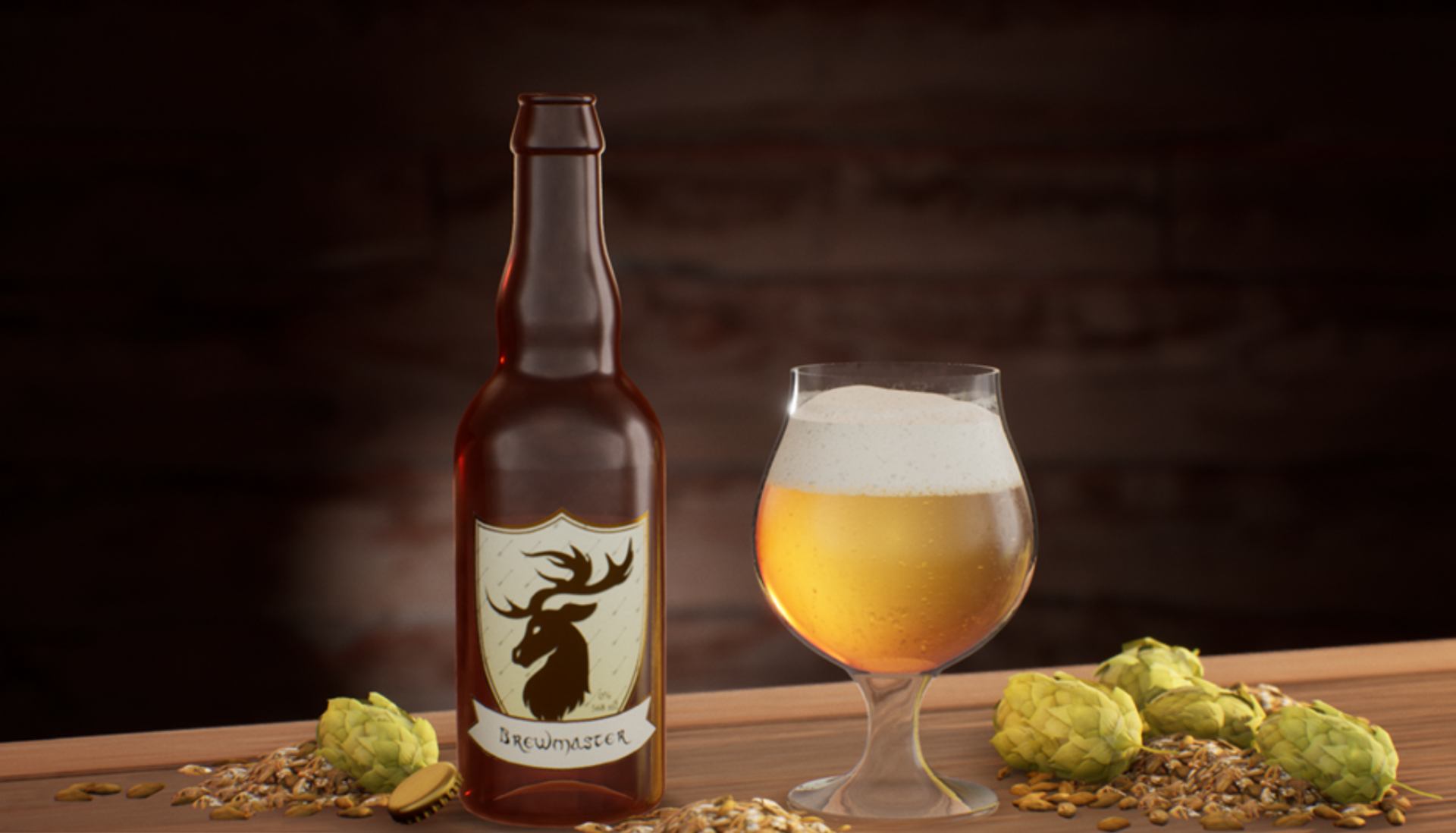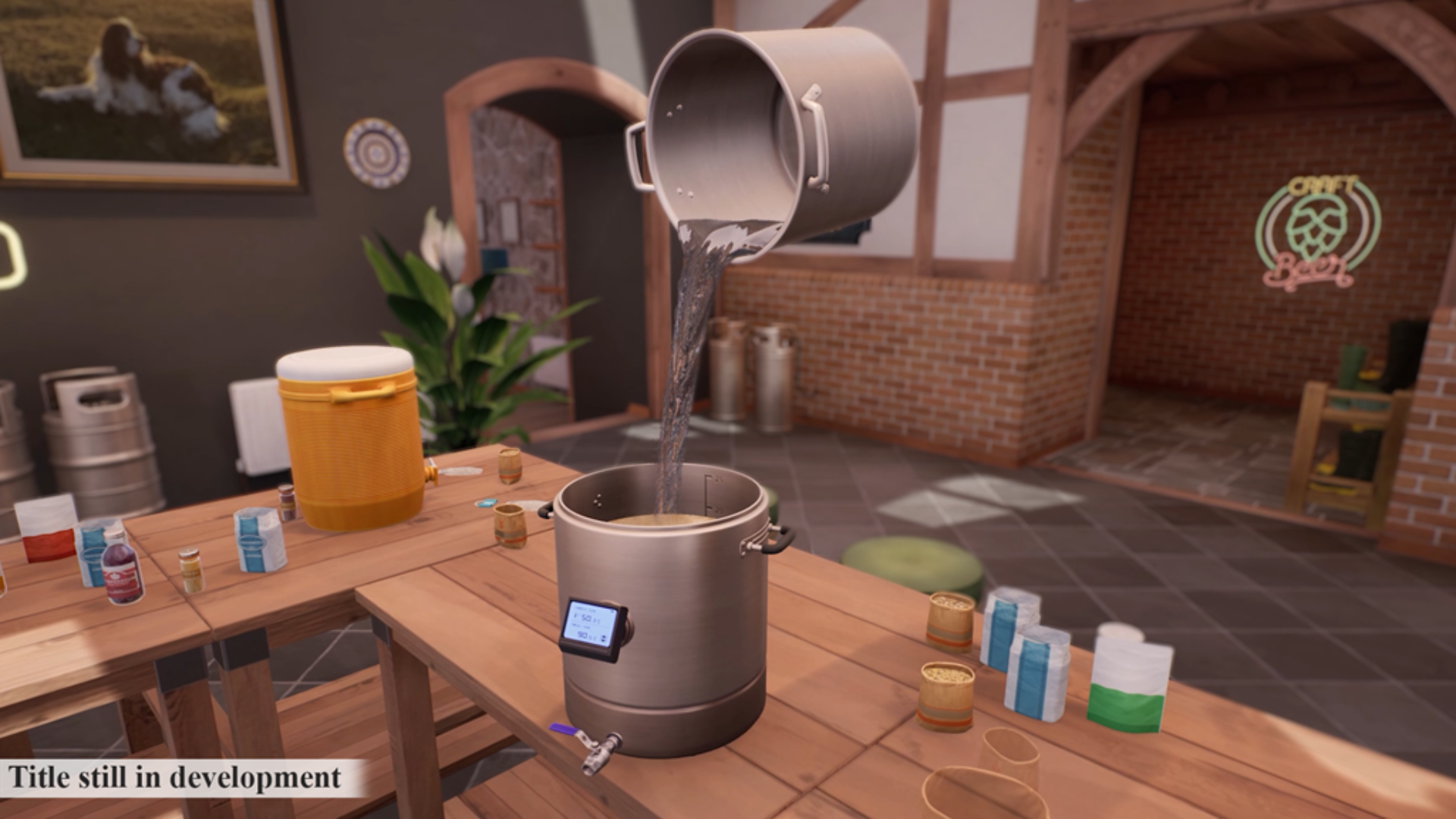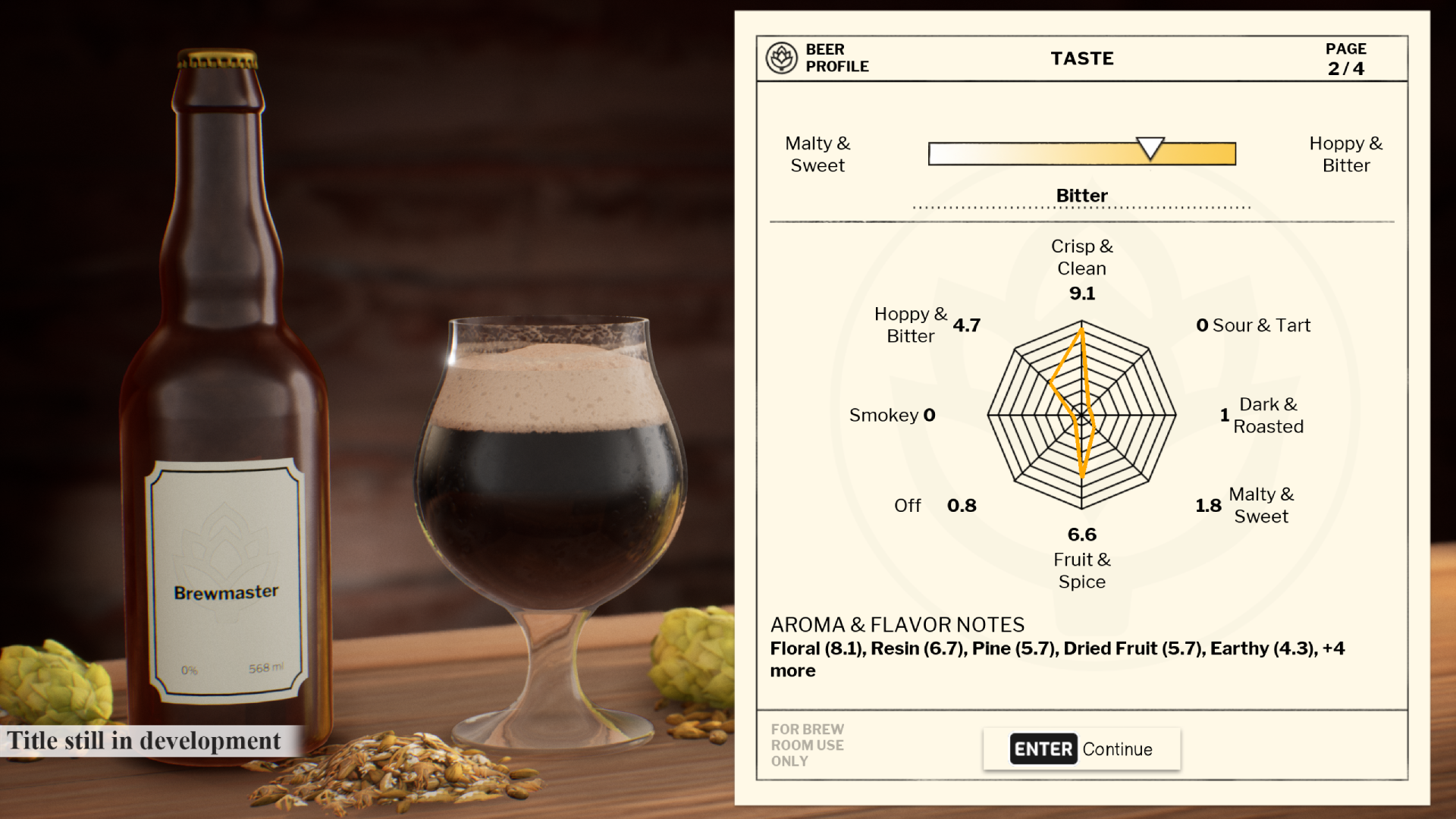Beg all you want - these beer game devs will not break the laws of physics for you
Perfect brew

What happens when players want something that the game developers aren’t willing to budge on? Well, the team behind the indie game Brewmaster knows the answer all too well. When testers started to complain about the water pressure of the taps, it “caused a bit of a divide” within the studio, says associate designer Ellie Harrodine.
The design team reluctantly sped up the tap. But after another complaint, “design put their foot down and said: ‘This is ridiculous, this tap is very fast and it doesn’t need to be any faster,’” says Harrodine.
Eventually, design caved again. But they stood by their decision not to give a kitchen sink the power of a firehose. So a compromise had to be made. The devs landed on a tap that was faster than usual while not breaking the laws of physics.
The incident is now viewed as an entertaining reminder of the unavoidable compromises that must be made in simulation games. Tap-gate goes to show that “developing a simulation game is about finding the fine balance between being realistic and making sure the game is fun to play”. And that this isn’t always an easy task.
“How can we make this game accessible to people who know their stuff, and don't want to be patronised,” asks Harrodine. “And also the people who have no idea what beer even is?”
In the face of this conundrum, Auroch Digital set out to make a beer brewing simulator game that will be fun and inclusive for all.
Chemical balance
Bristol is a hotbed of independent breweries, and developer Auroch “worked hand in hand" with communities in the area, says programmer Isobel McNeany.
Get daily insight, inspiration and deals in your inbox
Sign up for breaking news, reviews, opinion, top tech deals, and more.
Moreover, the developer didn’t stop at consulting the local industry in their aspirations for realism in Brewmaster. Time and effort were also sunk into the chemical equations and code that play a big role behind the scenes.

“We already know that there are going to be real-life brewers, home brewers, playing the game,” says Harrodine. “It would be cool to give a resource that mirrors the real-life chemistry.” Evidently, the studio got the fundamentals right, since it managed to brew a real-life version of a beer made in the game with help from Moor Beer.
But don’t worry, you don’t need a PhD in Chemistry to understand what’s happening in Brewmaster. I was scared at first, especially when I saw ‘specific’ and ‘original’ gravity. I still don’t know what either of those things are. But you don’t have to. Despite code “actually based on real-life brewing equations,” according to McNeany, “the player doesn’t have to do any of these calculations”. The developer has already done the math, ready for you to use on a whim.
Any simulator game needs reality at its base; otherwise, how can it be called a simulator? But just as important is Brewmaster’s role as an escape. The way the game is designed for people like myself, who may enjoy a good beer but have no clue how it’s actually made, makes the complex beer simulator approachable. This feature is essential if Brewmaster is to reach a wider audience.
Keeping it grounded
At the core of Brewmaster is the idea that this game should be playable for people of all skill ranges. “‘It’s definitely about offering that kind of gateway to learn something new in a non-intimidating way,” says Harrodine. “It opens the world of brewing up to people who haven’t tried it before, and it’s also a resource so the people who know their stuff can still play and experiment.”

As the real-life community of breweries is built on the idea of helping one another, this aspect was emulated within the game. You are encouraged to share what you have learned, your brews and your builds. That way, everyone can create “relationships through sharing that knowledge,” says Harrodine. Perhaps this is where the two archetypes in Brewmaster’s potential audience can come together, the skilled helping the aspiring.
It’s a great motive to have at the heart of your game. From chemistry equations to tap-gate, Auroch has worked hard to calculate the simulator’s ideal fun-to-reality ratio with Brewmaster. Not too bitter, not too dry.

Elie is a Features Writer for TechRadar Gaming, here to write about anything new or slightly weird. Before writing for TRG, Elie studied for a Masters at Cardiff University JOMEC in International Journalism and Documentaries – spending their free time filming short docs or editing the gaming section for their student publications.
Elie’s first step into gaming was through Pokémon but they've taken the natural next step in the horror genre. Any and every game that would keep you up at night is on their list to play - despite the fact that one of Elie’s biggest fears is being chased.